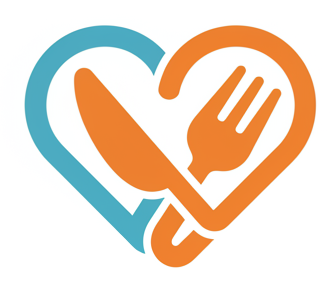It’s important to know how sugar affects your health today. Sugar’s health effects are becoming more common. Knowing the risks of sugar is key.
Sugar affects many parts of our lives, like energy and overall health. Its effects can be short-term or long-lasting. It’s crucial to learn about these impacts.

By understanding sugar’s effects, we can make better diet choices. This knowledge helps us avoid negative health effects. It also helps us have a healthier relationship with sugar.
Introduction to Sugar Health
The topic of sugar’s health impact is complex. We’ll explore how to manage and reduce sugar’s effects. This will help us make better choices for our health.
Key Takeaways
- Understanding sugar’s health impact is crucial for making informed diet and lifestyle choices.
- Sugar’s effects can be immediate or long-term, impacting energy and overall health.
- Learning about sugar’s effects is essential for avoiding negative health impacts.
- By knowing about sugar, we can promote a healthier relationship with it.
- Awareness and education are key to managing sugar’s health impact.
- With the right knowledge, we can manage sugar’s significant health impact.
Understanding Sugar in Modern Diet
Sugar is everywhere in our diets today, and it’s a big health worry. Knowing how sugar affects our health is key. It’s important to tell natural sugars from added sugars. Natural sugars are in foods like fruits and dairy, while added sugars are in processed foods.
Most people eat too much sugar without even knowing it. This is because many foods and drinks have hidden sugars. Processed foods like cereals and sauces add a lot of sugar to our diets. Also, drinks like soda and sports drinks are full of added sugars.
Natural vs. Added Sugars
Natural sugars in foods like fruits have good stuff like fiber and vitamins. But added sugars in processed foods don’t have these benefits. This makes added sugars bad for our health.
Common Sources of Hidden Sugars
- Processed meats
- Canned goods
- Baked products
- Flavored yogurts
Knowing where hidden sugars are can help us make better choices. By cutting down on these sugars, we can lower health risks.
How Your Body Processes Sugar
When you eat sugar, your body turns it into glucose. This glucose then goes into your bloodstream. Insulin, a hormone from your pancreas, helps control blood sugar levels. But too much sugar can cause health problems, like insulin resistance and metabolic disorders.
The way sugar is digested and absorbed is quite complex. It involves many organs and systems. Here’s what happens:
- Carbohydrate breakdown: Sugar is broken down into simple carbs, like glucose and fructose, in your mouth and stomach.
- Absorption: Glucose is absorbed into your bloodstream through the small intestine walls.
- Insulin regulation: Insulin helps control blood sugar levels by letting glucose into cells.
- Energy production: Glucose is turned into energy, which your body uses for different functions.
Knowing how your body processes sugar is key to understanding the health problems from too much sugar. By watching your sugar intake and eating a balanced diet, you can lower your risk of issues like insulin resistance and metabolic disorders. This helps avoid other sugar-related health problems.
The Impact of Sugar on Your Health: Key Concerns
Eating too much sugar can cause sugar-related health issues that harm our well-being. It’s important to know the risks of sugar to make better food choices.
Sugar’s immediate effects include energy drops and mood swings. Over time, too much sugar can raise the risk of serious diseases like obesity, type 2 diabetes, and heart disease. The sugar impact on well-being is a big worry, affecting both our physical and mental health.
Short-term Effects on Body and Mind
- Energy crashes and mood swings
- Increased risk of cavities and tooth decay
- Disrupted digestive system
Long-term Health Implications
Eating too much sugar can lead to serious health problems like obesity, type 2 diabetes, and heart disease. It’s key to know the sugar-related health issues and cut down on sugar.
Sugar’s Role in Chronic Diseases
Knowing how sugar affects chronic diseases helps us make better diet choices. By being aware of sugar impact on well-being, we can lower our risk of these diseases and stay healthy.
Sugar’s Effect on Weight Management
High sugar intake can harm your health, especially when trying to manage weight. It quickly adds calories, leading to weight gain and obesity. This is because sugar affects how your body uses energy.
Studies show a strong link between sugar and obesity. Too much sugar increases the risk of obesity and health issues. Keeping blood sugar levels in check is key to a healthy weight. It helps avoid insulin resistance and metabolic problems.
Metabolic Impact
Sugar’s effect on metabolism is complex. It involves insulin and hormones that control glucose and fats. Knowing how sugar impacts metabolism is crucial for managing weight.
Connection to Obesity
The relationship between sugar and obesity is complex. It involves overeating, bad nutrition, and not enough exercise.

Blood Sugar Regulation
Keeping blood sugar levels stable is important for a healthy weight. It prevents insulin resistance and metabolic issues. A balanced diet, exercise, and less sugar can help. This reduces the negative effects of sugar on health.
Mental Health and Sugar Consumption
The link between sugar and our mental health is complex. Eating too much sugar can harm our mental state, making anxiety and depression worse.
Studies show that too much sugar can cause brain inflammation. This can lead to feelings of sadness and worry. It’s crucial to eat a balanced diet for our mental health. Foods like fruits and veggies give us the nutrients we need.
Here are some tips to control sugar intake for better mental health:
- Eat regular meals to avoid blood sugar spikes
- Choose whole foods over processed and packaged foods
- Limit sugary drinks and snacks
Combining a healthy diet with exercise and enough sleep helps our mental health. Being mindful of sugar and making smart food choices can lower mental health risks. This leads to a happier life.
“A healthy diet is not just about physical health, but also about mental well-being. By making informed food choices, we can take the first step towards a healthier and happier life.”
Understanding the sugar and health connection helps us control our mental health. It’s key to know how sugar affects our mind and make choices that support our health.
| Sugar Intake | Mental Health Effects |
|---|---|
| High sugar intake | Increased risk of anxiety and depression |
| Low sugar intake | Improved mental health and well-being |
The Link Between Sugar and Aging
As we get older, our bodies change in ways that can impact our health. One thing that can speed up aging is eating too much sugar. It’s important to know how sugar affects us. The effects can be mild or severe, and it’s key to understand the risks.
Eating a lot of sugar can cause inflammation and oxidative stress. This can make us look older, with wrinkles and age spots. It can also harm our skin, causing acne, dryness, and sensitivity.
Impact on Skin Health
Eating less sugar can help keep our skin healthy. A diet full of fruits, veggies, and whole grains gives our skin what it needs. Foods like leafy greens, berries, nuts, and seeds are great for our skin.
- Leafy greens, such as spinach and kale
- Berries, such as blueberries and raspberries
- Nuts and seeds, such as almonds and chia seeds
Cellular Aging Process
Sugar can harm our cells and cause inflammation. This can make us look older, with wrinkles and age spots. Eating less sugar helps our cells age better and lowers the risk of diseases.
Inflammation and Oxidative Stress
Inflammation and oxidative stress are big factors in aging. Eating too much sugar can cause these problems. Eating less sugar and more antioxidants helps fight inflammation and oxidative stress, promoting healthy aging.
| Food | Sugar Content | Health Effects |
|---|---|---|
| Refined sugar | High | Contributes to inflammation and oxidative stress |
| Fruits | Natural sugars | Rich in antioxidants and fiber |
| Vegetables | Low | Rich in antioxidants and fiber |
Breaking the Sugar Addiction
To beat the risks of sugar intake, knowing how sugar affects your body is key. Cutting down on sugar is tough, but with the right plan, you can control your cravings. This leads to a healthier sugar relationship.
Here are some tips to help you break the sugar addiction:
- Gradually reduce your sugar intake to minimize withdrawal symptoms
- Find healthy alternatives to satisfy your sweet tooth
- Stay hydrated by drinking plenty of water
Remember, breaking the sugar addiction is a journey. It takes time and effort. Be patient and don’t get too hard on yourself if you slip up. With persistence and the right mindset, you can beat the risks of sugar intake and boost your health.
By controlling your sugar intake, you can lower your risk of chronic diseases. Start your journey today. Take the first step towards a healthier, happier you.
| Strategies for Reducing Sugar Intake | Benefits |
|---|---|
| Gradual reduction | Minimizes withdrawal symptoms |
| Healthy alternatives | Satisfies sweet tooth without added sugars |
| Staying hydrated | Helps reduce cravings and supports overall health |
Healthy Alternatives to Refined Sugar
Reducing sugar intake is key to avoiding health problems. Exploring healthy sugar alternatives is a smart move. It lets you enjoy sweet treats without harming your health.
Being aware of sugar in daily foods and drinks is crucial. Making smart choices can lower your risk of sugar-related health issues.
Natural Sweeteners
Natural sweeteners like honey, maple syrup, and stevia are good alternatives. They have less sugar and more nutrients than refined sugar. Honey, for example, has antioxidants and fights off germs.
Sugar-Free Recipe Ideas
Being creative in the kitchen helps you avoid sugar. Use fruit purees or spices for sweetness instead of sugar. Try making dark chocolate avocado mousse or banana “ice cream” from frozen bananas.

Reading Food Labels
When buying packaged foods, always read labels. Look out for hidden sugars like high-fructose corn syrup. Choose products with fewer ingredients and less sugar. This way, you can make better choices and avoid health problems.
Conclusion: Taking Control of Your Sugar Intake
The impact of sugar on your well-being is huge. It affects your body and mind in the short and long term. It’s key to control your sugar intake for good health.
Start small to make a big change. Read food labels and find hidden sugars. Try natural sweeteners and sugar-free recipes to curb cravings.
Controlling your sugar intake is a gift to yourself. It’s about choosing health over sugar. This journey will boost your energy and focus, making you feel better overall.
Disclaimer: This article is for informational purposes only and does not constitute medical advice. Always consult a healthcare professional before starting a new exercise or wellness routine.
FAQ
What are the short-term effects of sugar on the body and mind?
Eating too much sugar can make you feel moody and tired. It can also make it hard to focus. Physical symptoms include headaches, feeling very tired, and stomach problems.
How does sugar affect long-term health?
Eating too much sugar can lead to serious health issues. These include obesity, type 2 diabetes, heart disease, and some cancers. It’s key to watch how much sugar you eat to stay healthy.
What is the connection between sugar and weight management?
Sugar affects how your body handles blood sugar, which can lead to weight gain. The link between sugar and obesity is clear. So, controlling sugar intake is vital for a healthy weight.
How does sugar affect mental health?
Studies show that eating too much sugar can lead to anxiety and depression. Eating a balanced diet with less sugar helps keep your mind healthy.
How can sugar intake impact the aging process?
Too much sugar can make your skin age faster and cause cell damage. It also increases inflammation and oxidative stress. Cutting down on sugar helps with healthy aging.
What are some healthy alternatives to refined sugar?
Natural sweeteners like honey, maple syrup, and stevia are better than refined sugar. Using sugar-free recipes and checking food labels helps you make better choices.






